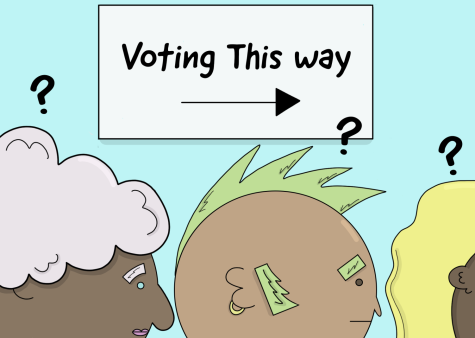Rank choice voting needs to be implemented
March 11, 2023

In a few short weeks, Chicago voters will decide their next mayor in a runoff election under an outdated system.
From the nine candidates, the two major contenders were Paul Vallas, who earned a total of 184,526 votes, and Brandon Johnson, who earned a total of 120,612 votes, in the Feb. 28 election.
Johnson rose with the progressive vote, which was split among candidates such as Jesus “Chuy” Garcia (76,475 votes), Ja’Mal Green (12,086 votes) and Kambium Buckner (10,954 votes).
Runoff elections were first introduced in Chicago in 1999 to ensure that one candidate earns 50% of the vote. In runoffs, the process of voting through mail-in ballots and day-of-voting repeats itself.
Runoffs are costly and tend to have have a low and unbalanced turnout.
The implementation of rank choice voting would eliminate runoffs and would ensure equitable representation.
Our current system of plurality voting permanently encases us in a strict two-party system as many voters feel that they must choose the “stronghold” candidate, or the candidate who is likely to get the most support, so that their vote actually matters. That means, if you wish to vote for a third party candidate, then you have essentially wasted your time.
Time and time again I have been told to think realistically when it comes to my preferred candidates that I cannot risk throwing away a vote when another may need it.
If throwing away a vote has become part of the electoral process, then the need for another system is necessary – expeditiously.
In fact, Alderman for the 47th ward Matt Martin recently proposed implementing a rank choice voting system for the city of Chicago where many contested mayoral and aldermanic races occur.
Rank choice voting allows voters to rank candidates in order of preference instead of choosing just one.
Quick Explanation:
Let’s say there are five candidates running for a single seat. The voter will rank their preferred candidate as “1” and so on. If their first choice earns 50% of the vote, then that candidate wins. If this does not happen, then the counting continues in rounds where each round will eliminate the candidate with the fewest votes. The second choice votes for that eliminated candidate are redistributed, and this process continues until a candidate wins more than half of the vote.
A system such as this allows for an increase of voter participation as the ability to fully express one’s preferences is implemented. In fact, in places where RCV has been implemented, there has been a 10% increase in voter turnout.
For Chicago’s municipal election, under a third of all registered voters turned out for this election. In a city as diverse as Chicago, voters need to be active participants. But that should not always fall on the voter; the voting system needs to change to encourage voter participation.
The most important aspect about RCV is that we avoid what is known as the “spoiler effect” – otherwise known as vote splitting where two candidates with similar views have overlapping supporters.
Coordinator of Student Organizations and registered Chicago voter Allen Lucas, believes that if RCV had been implemented in Chicago’s election, the results would have been different.
“It’s very easy for like-minded candidates to encounter the issue of a split vote, and for other candidates to take the lead even if the majority of voters overall don’t care for them,” Lucas said. “Rank choice voting could give voters the opportunity to more freely support the candidates that they support the most without worrying about who has the best chances of winning or feeling like their vote didn’t matter.”
I agree. In addition to that, RCV reduces negative campaign tactics as candidates would not only need the first choice vote but also the second and third. Elections will no longer only be about strict loyalty to a party, but about broadening the chances for all candidates. The only endorsement would come from the candidates, not the machine.
As someone who is not registered to vote in the city of Chicago, I observed the recent mayoral elections through an outsider’s point of view, but even I found myself split between candidates. It was also very evident that the progressive vote would be split amongst certain candidates, allowing Paul Vallas to emerge as a contender in the runoff election.
Now, as someone born and raised in the great state of Texas, I know how crucial voting can be.
It’s become a necessity – a preservation of democracy with each election year.
The preservation of this democracy must always rely on what is known as plurality voting, a system where voters choose only one candidate and the candidate with the most votes wins the election.
The only system truly capable of preserving democracy is rank choice voting.







